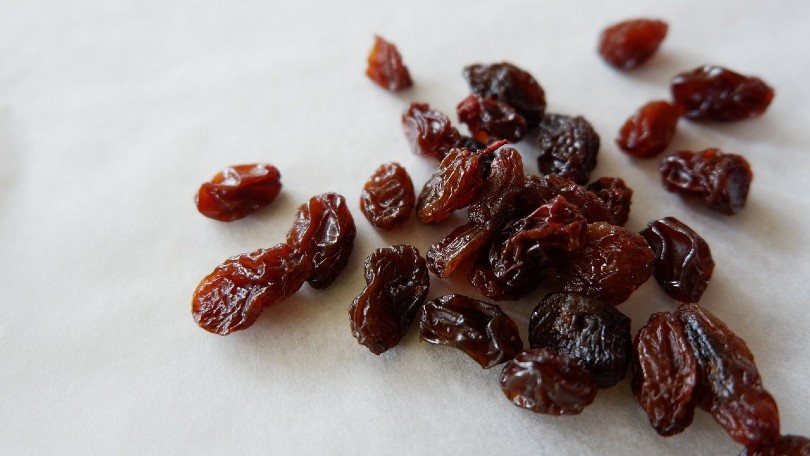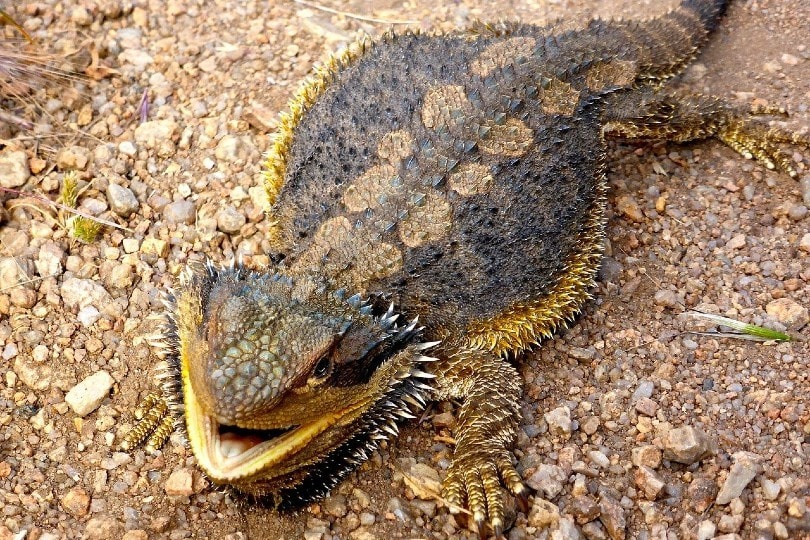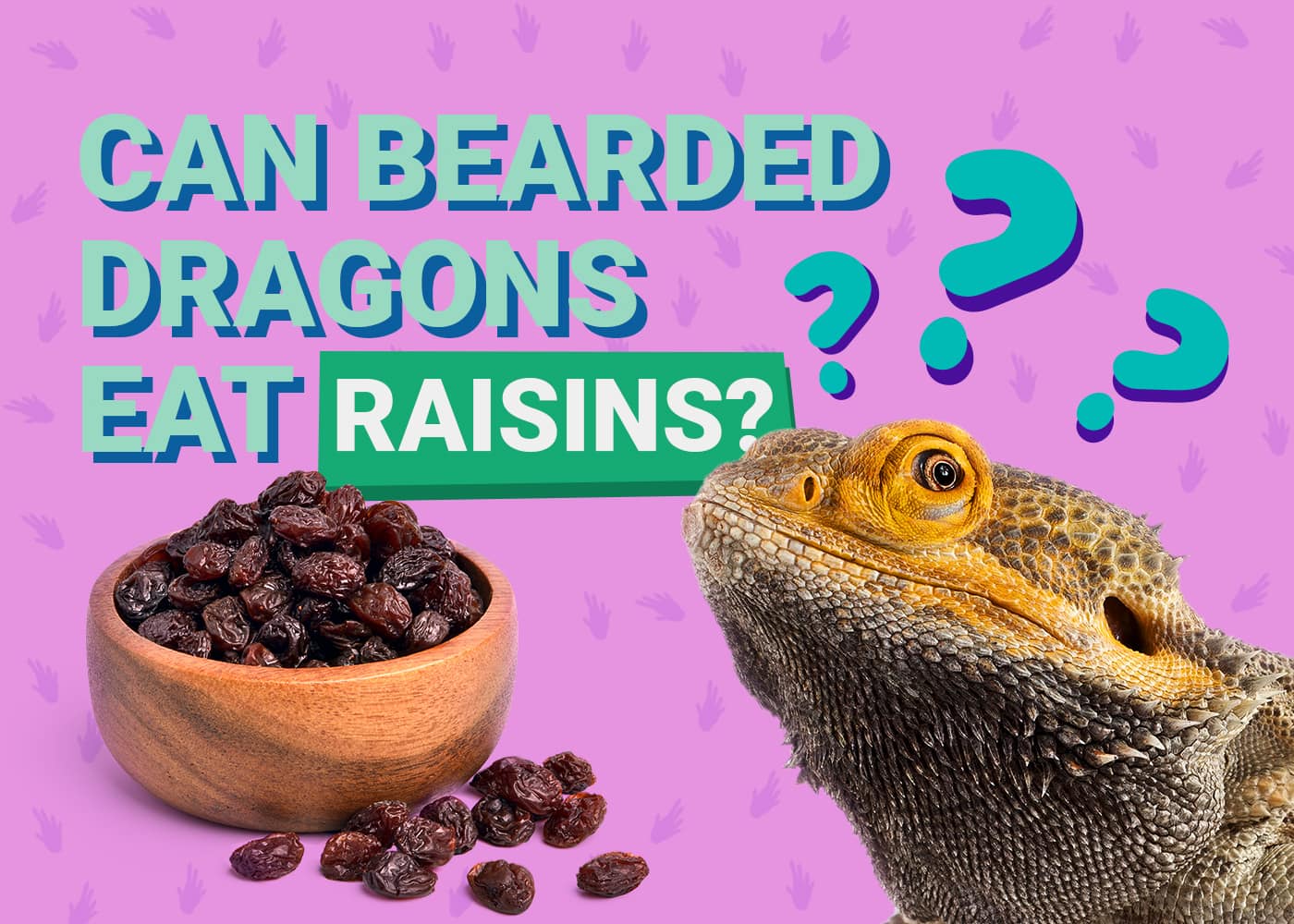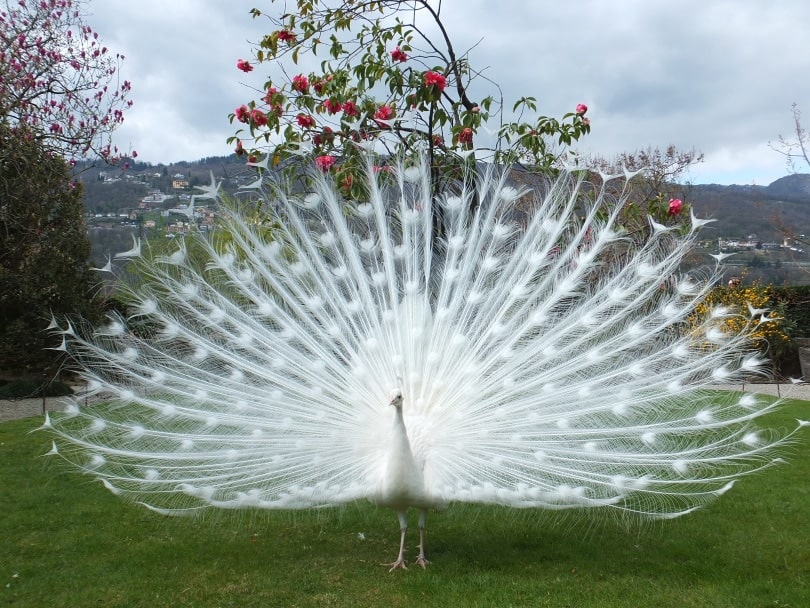VET APPROVED

The information is current and up-to-date in accordance with the latest veterinarian research.
Learn more »Click to Skip Ahead
As far as reptiles go, bearded dragons are relatively adventurous eaters. They’ve got a tendency to gobble down—or at least try—nearly everything put in front of them.
But what about raisins? In the wild, bearded dragons are known to eat fruit, but it’s normally fresh. So, can bearded dragons safely eat these dried grapes?
Yes, bearded dragons can safely eat raisins without any fear of toxicity. However, that doesn’t necessarily mean they should. These aren’t the greatest foods for your pet. When consumed in mass quantities or regularly, raisins can harm your lizard’s diet and health.

Nutritional Information for Raisins
When scoping out a new addition to your bearded dragon’s diet, you need to pay close attention to the nutritional content of that item, particularly the protein content, fat, fiber, calcium, and calcium-to-phosphorus ratio.
- 15.5 grams of water
- 3.3 grams of protein
- 0.25 grams of fat
- 65 grams of sugar
- 62 mg of calcium
- 98 mg of phosphorus
- 4.5 grams of fiber
Source: https://fdc.nal.usda.gov/fdc-app.html#/food-details/1102640/nutrients
Raisins have 62 mg of calcium and 98 mg of phosphorus per 100 grams. This is one of the biggest issues when it comes to your pet snacking on these dried fruits.

Unhealthy Calcium-to-Phosphorus Ratio
Bearded dragons—and other reptiles—need a high dosage of calcium each day. It helps support their bone structures as they grow. Calcium is also extremely important for gravid females, to ensure that their eggs are strong enough to endure the laying process. Also, without a sufficient amount of calcium, female egg-layers will risk a major loss of calcium and become susceptible to many complications.
However, it’s not just about getting as much calcium as possible. You’ll also need to keep track of how much phosphorus is in your bearded dragon’s diet. Phosphorus effectively prevents calcium from being absorbed into the body. That’s why the recommended ratio for calcium to phosphorus is 2:1—or two parts calcium to one part phosphorus. This will ensure that your bearded dragon can get the right amount of calcium that they require. The recommended calcium-to-phosphorus ratio for a laying female is approximately 10:1.
With raisins, you’ll notice that the ratio is completely flipped in that there’s more phosphorus than calcium! It can be detrimental to your lizard if they eat these dried fruits in large quantities, leading to problems like metabolic bone disease.
High Sugar Content
Another downside of raisins for your bearded dragon is their high sugar content. Raisins, like most dried fruits, have a huge concentration of sugar—around 65 grams of sugar per 100 grams!
Too much sugar in a bearded dragon’s diet has been linked to a specific type of cancer (neuroendocrine carcinoma).


Benefits of Your Bearded Dragon Eating Raisins
While raisins aren’t the best snacks for your bearded dragon to chomp down on, there are a few health benefits to giving them a raisin every now and then, though no more than roughly once a month.
For example, raisins contain a good amount of dietary fiber. If your bearded dragon is having bowel complications or another digestive issue, the fiber contained in a raisin can help get them back on track to being regular.
Just be sure to only give them one or two—not an entire meal’s worth.

Final Note
Although non-toxic and technically safe to eat, we don’t recommend feeding your bearded dragon raisins regularly. Their high sugar content and undesirable calcium-to-phosphorus ratio can lead to serious complications down the road if they have them too regularly.
If you still want to toss your bearded dragon a raisin, we only recommend that you do so once a month at a maximum. There are plenty of other tasty snacks out there for your lizard that meet the criteria for them to live their best life.
Featured Image Credit: Håkan Stigson, Pixabay










